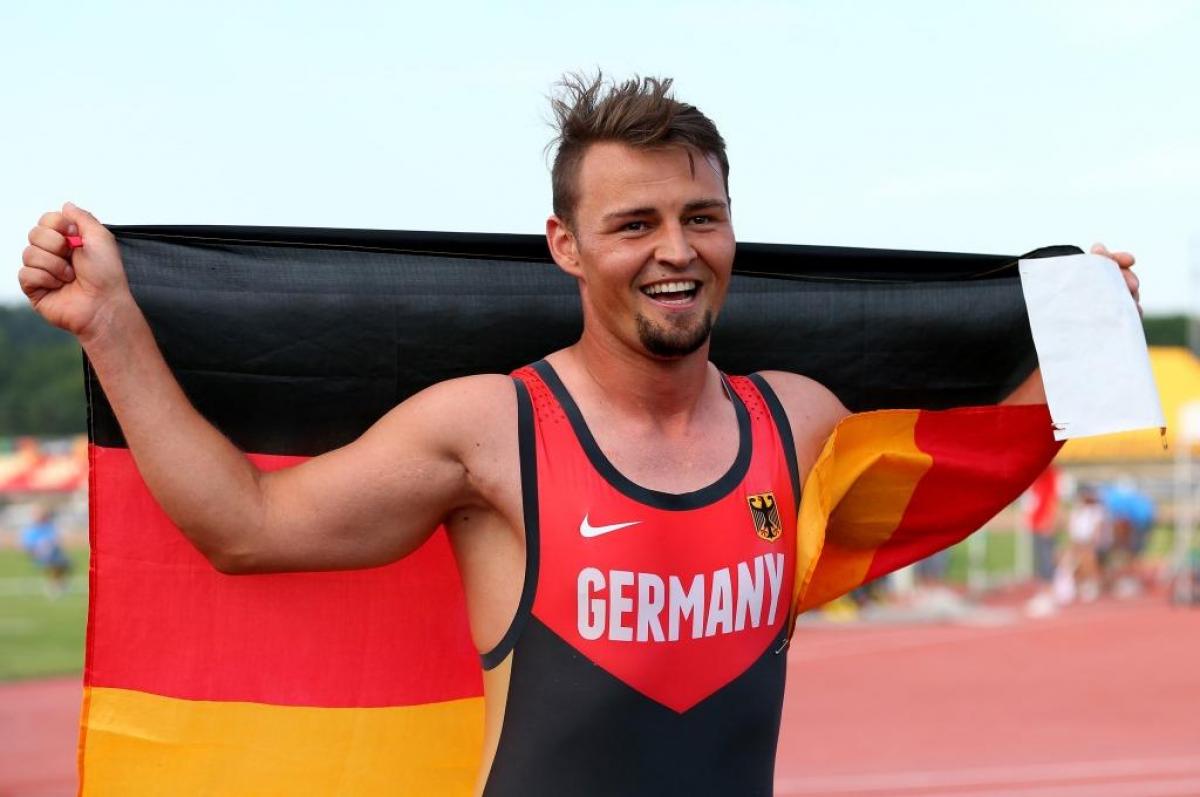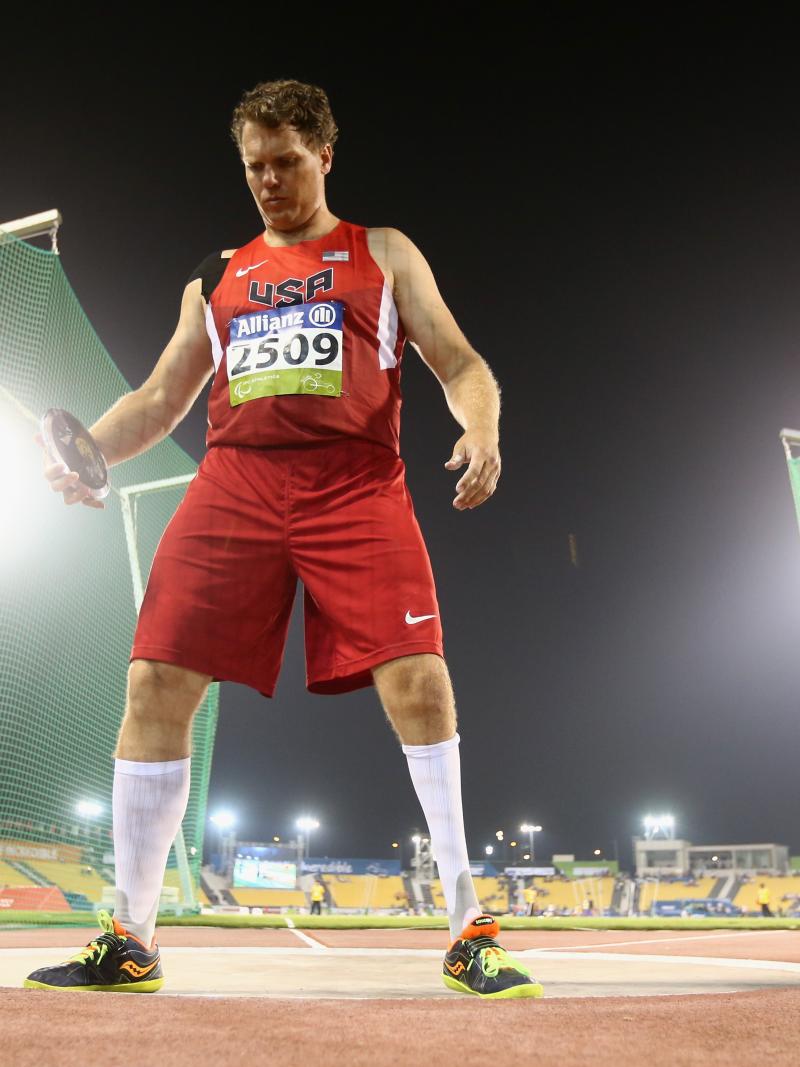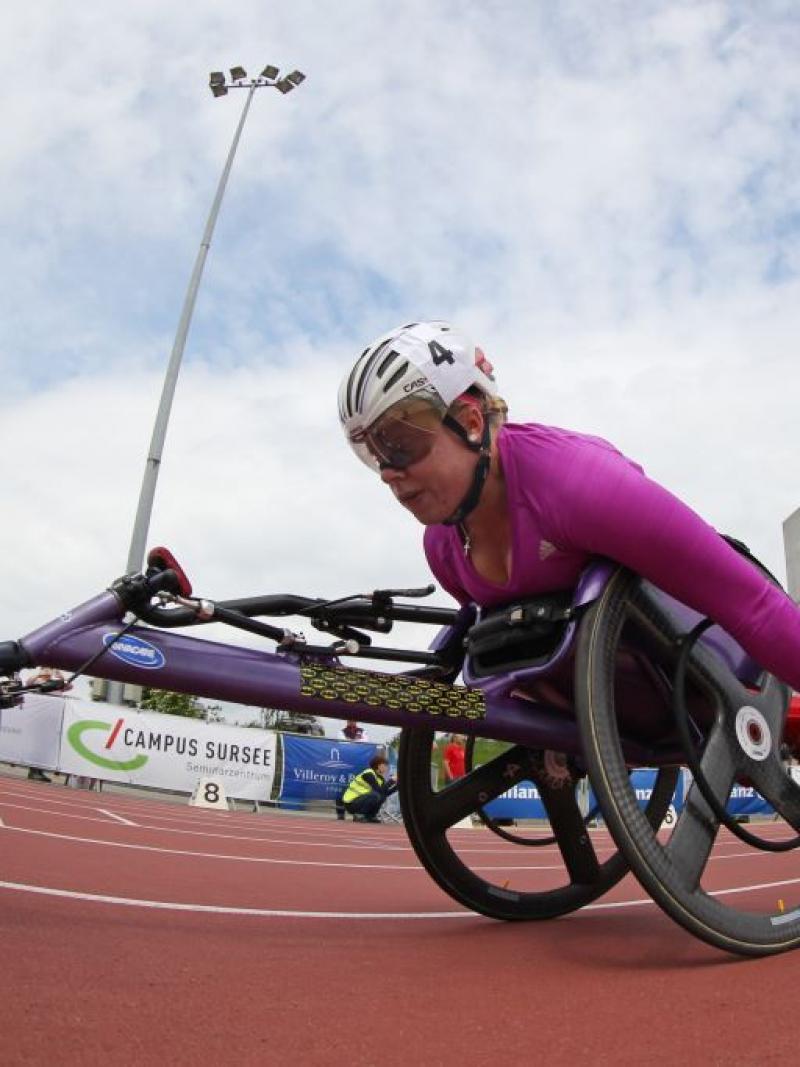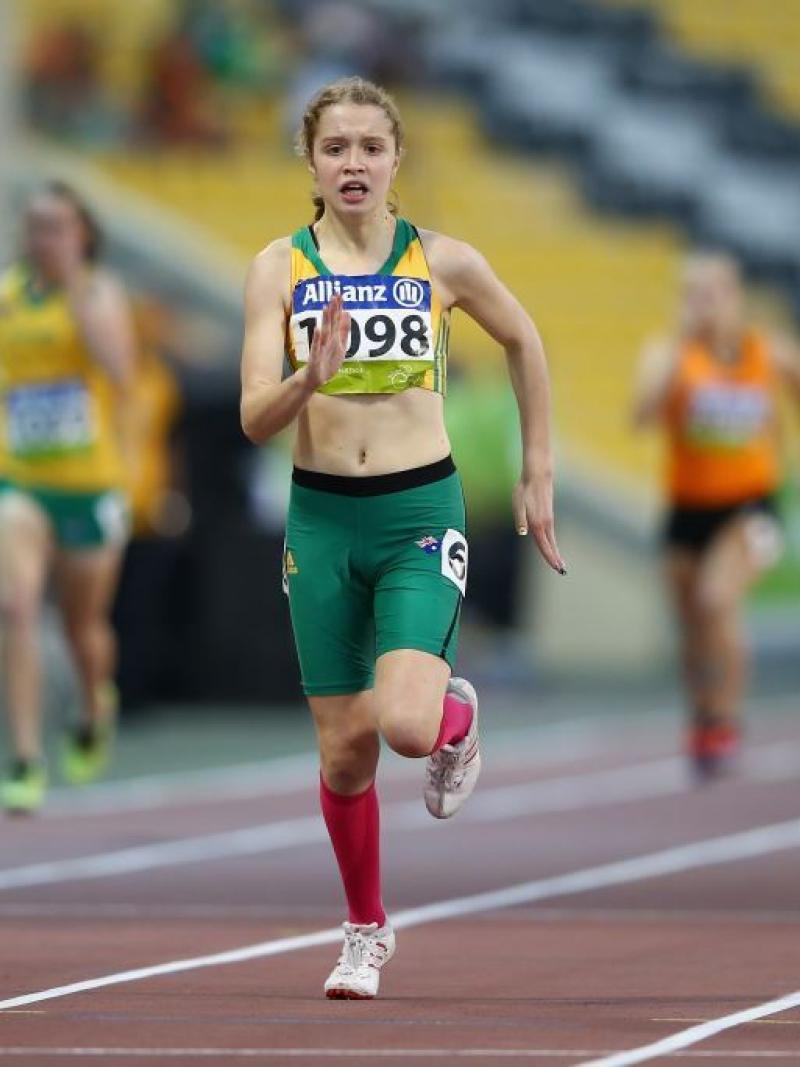Off the Beaten Track with Germany’s Heinrich Popow
The 100m T42 Paralympic champion talks about his Ottobock running clinics are inspiring a whole new generation. 03 Sep 2016
Germany's Heinrich Popow is the world record holder in the men's long jump T42 heading in to the Rio 2016 Paralympic Games.
In our final ‘Off the Beaten Track’ feature ahead of Rio 2016, reigning Paralympic champion Heinrich Popow reveals how he has been working to help nurture the next generation of Para athletic stars.
The German Para athlete, who competes in the T42 class, has spent the last four years developing and inspiring amputee runners through running clinics he holds around the world.
Popow, who won 100m T42 gold at London 2012 then memorably tied for first place with Australian Scott Reardon at the 2013 World Championships, missed out on the World Championships last year through injury.
But he put that time to good use as he worked in conjunction with Ottobock to help amputees at home in Germany and abroad in places such as Mumbai, India, to experience running on blades.
Popow admits that his own experiences as an amputee played a large part in focussing his passion towards helping others.
“It’s something where I come from,” explained the 33-year-old, who has won seven Paralympic medals across three Games.
“My parents told me after London (Paralympic Games), ‘If you forget where you’re coming from we won’t support you anymore.’
“Then I realised where I’m coming from. Before my amputation there was a person who told me how important sport is and what I can do through sport, and how I can handle my amputation positively.
“I try to give it back to the people and travel all over the world to let others try running, and give them the feeling of the wind in their face again, of moving forward really quickly.”
Popow held the first Ottobock running clinic in Switzerland five years ago; since then he has been as far afield as Japan, the USA and Brazil. Last year he also ran talent days at home in Germany, where young children had the chance to try running with prosthetics.
The clinics typically last three days:
“On the Friday afternoon we meet together and discuss how they lost their leg and what their goals are; what they want to learn,” explained Popow.
“Then we have a look at the prosthetics and set it up – sometimes it takes all night to set up so the participants can start running on Saturday morning. We do lots of core work – everything that is important to handling the prosthetic.
“After a day running they put on their normal leg and they feel really disabled because they can’t walk properly any more. Sunday morning is another running session, then in the afternoon we try to go for a long distance run.”
The results speak for themselves – for many, progress has been phenomenal.
Swiss 24-year-old Abassia Rahmani took part in Popoow’s clinic three year ago – she won 100m T44 bronze at this year’s IPC Athletics European Championships in Grosseto, Italy.
“Lots of participants are coming up now and showing good progress,” said Popow.
“Abassia’s story was one of the hardest running clinic stories. She was just sitting down, saying she didn’t want to participate, she just wanted to watch how they run and then think about it.
“I saw in her eyes after half an hour that she wanted to try. I said to the technician to go to her and tell her that she needed to try it, no matter what she said.
“It was nice to see her competing well - it’s a motivation for her and for me too”.
Popow insists that his job is solely to provide a springboard in to Para athletics – how far each individual chooses to pursue sport is entirely up to them.
“I just give them the start, everything else they are doing by themselves,” explained Popow.
“The start is what we are missing in helping amputee people to come to our sport. If they decide to put more work in to it then it’s their success.”
It’s not just adults who benefit from Popow’s experience. In Japan, many youngsters took part in the programme – Popow even received a letter of thanks afterwards from a 12-year-old participant who said that the clinic had changed her life.
Of course without Otttobock’s assistance, Popow’s job would be far harder.
“I couldn’t do it without the support that Ottobock gives me. For Ottobock it’s positive, for me it’s positive, and for the people it’s positive. It’s a win-win situation for everyone,” he said.
But it’s clear that without Popow’s passion and drive, many of the success stories would not materialise. Brazilian Vinicius Goncalves Rodrigues is a case in point.
A former running clinic student, he now sits 10th in the 100m T42 world rankings.
“I have to go faster to not lose against him,” said Popow.
“He will be a great athlete. He messages me all the time. I’m still supporting him. He wants to come to Germany to train with me and learn more. He wants to take part in the running clinic part two,” said Popow.
“It makes me proud that people come back and know where they are coming from too.”
__
Sport fans from around the world can now buy their Paralympic tickets for Rio 2016 from authorised ticket resellers (ATRs).
The IPC’s Global ATR is Jet Set Sports, and Rio 2016 tickets and packages can be purchased on the CoSport website.
Residents of Brazil can buy 2016 Paralympics tickets directly from the Rio 2016 website.
Visa International is the exclusive payment card and the official payment system for the Paralympic Games

 Facebook
Facebook
 Instagram
Instagram
 Twitter
Twitter
 Youtube
Youtube
 TikTok
TikTok
 Newsletter Subscribe
Newsletter Subscribe



